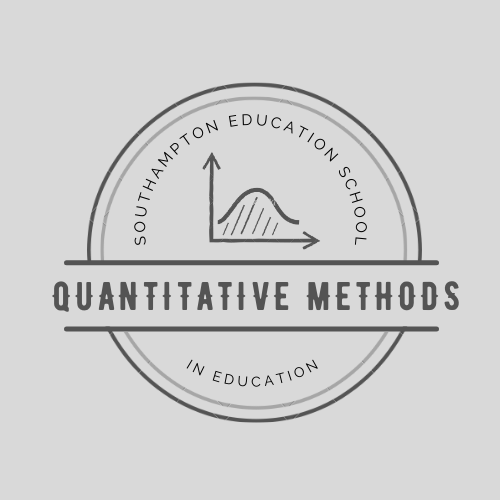Welcome to the blog of the Quantitative Methods in Education Group at the University of Southampton
We are a group of academics based in Southampton Education School at the University of Southampton. Together, we make full use of the diverse and expanding range of innovative research designs, methods, and techniques that are available to the contemporary educational researcher that fall under the umbrella term 'Quantitative Methods'.
On this site you will find information on:
. Our group aims and goals
. Who we are and what we do
. Our latest research
. Useful quantitative resources
. Information on enquiring about working with us


Hello and a warm welcome to the Quantitative Methods in Education (QME) group here at the University of Southampton.
The QME group is both inclusive and welcoming . Our membership cuts across the research centres in the Southampton Educational School, includes both faculty staff and doctoral students, and reaches out to welcome researchers elsewhere in the university and external organisations.
We welcome contact both from prospective research partners and prospective PhD students.
Dr James Hall,
QME Group Lead
Group Aims
1. To foster quantitative methods as they are used in education: research, policymaking, and professional practice (including educational interventions and assessment).
- This includes educational research within the University of Southampton, within the UK, and internationally, with a particular focus on advancing educational research that unravels issues of educational effectiveness and educational equity.
2. To develop and improve the quantitative methods that are used in education research, policymaking, and professional practice. This with the understanding that research-driven policymaking and professional practice is wholly dependent upon the appropriate research methods being used in appropriate ways.
3. To foster quantitative analysis of datasets pertinent to advancing educational research, policymaking, and professional practice. Thus we aim to support both secondary statistical analyses, machine learning and AI, and data-driven research.
